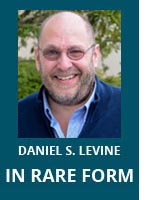
When Sandra Sermone’s son Tony became one of the first people in the world to be diagnosed with ADNP syndrome, a complex neuro-developmental disorder, there was not much known about the condition.
ADNP syndrome is an ultra-rare disease that causes intellectual and neurodevelopmental disabilities, speech delays, autism, seizures, low muscle tone, and cardiac and brain abnormalities. There are less than 250 people known to have the condition today.
Tony, who is now 12, spent much of his young life in hospitals undergoing tests, procedures, emergency room visits, and surgeries. He was diagnosed in 2014 at Duke University shortly after the first paper about the condition had been published. At the time, there were no doctors who knew about the disease. There were no medical protocols, support groups, available treatment, or even a website about the condition. In fact, it didn’t even have a name.
“They basically handed me a piece of paper with an ultra-rare genetic mutation on it and sent me on my merry way,” Sermone said.
Now, a clinical trial is getting underway to see whether low-dose ketamine, a powerful anesthetic, might be repurposed to treat ADNP syndrome, thanks largely to efforts by Sermone and Matt Davis, the father of another child with the condition. Finding an already approved drug that can be used to treat a rare condition, can provide a speedy and low-cost alternative to traditional drug development.
Sermone, founder and president of ADNP Kids Research Foundation, discovered the first biomarker for the condition, has coauthored five scientific papers in leading peer-reviewed journals, has been sought out by scientific journals to review others’ papers about ANDP, and has now filed for a patent for a potential treatment for ADNP syndrome. Not bad for someone whose formal education ended when she earned a GED from the Los Angeles Unified School District.
In part, chalk up some of the progress she has made to impatience. When an Israeli drug company delayed plans to begin clinical studies on a possible therapy for ADNP because they were exploring potential broader uses for the therapy, Sermone grew angry and decided to begin efforts to find candidates to repurpose as a treatment for the condition. She discussed the idea with Davis, whose son Benjamin was diagnosed with ADNP syndrome in 2014.
Davis, who is completing his training in neurosurgery at the University of Alabama at Birmingham, reached out to Matt Might, the director of the Hugh Kaul Precision Medicine Institute at UAB. Might, the parent of a child with a different ultra-rare disorder, has been developing an artificial intelligence driven engine for reviewing a massive library of medical literature and scientific studies to identify potential candidates to repurpose for rare disease therapies. Davis asked Might to do a search and he came back with a handful of candidates they should consider investigating.
As Sermone and Davis plowed through scientific publications to explore the candidates that they had in hand, they found growing evidence that low-dose ketamine could be a viable candidate to treat ADNP. Ketamine at high doses destroys neuronal cells, but at low doses it was neuroprotective and increased expression of the ADP protein, something that could benefit people with ADNP.
Sermone got the idea of repurposing a drug from attending the RARE Entrepreneur Bootcamp, a collaborative effort between Ultragenyx and Global Genes with additional sponsorship support.
She has attended the bootcamp three times. She also credits those sessions with helping her understand the drug development process, what animal studies she would need, what clinical data she would need, and how she might be able to leverage existing studies to repurpose a drug.
“Most of us are parents, but we’re the most highly motivated people there are, and we want to learn, and this is the best place. This is a crash course in everything,” Sermone said of the bootcamp, which has taught her how to pitch venture capitalists and pharmaceutical companies, how the drug development process works, and how to develop outcome measures. “They’re giving us all these things that they believe we can do as parents or nonprofits, working to give us the best chance of doing something like this.”
Those sessions, she said, also taught her the importance of filing for patent protection on the off-patent drug for its repurposed use. “We’re just getting a right to use it,” she said. “No one can screw us over and charge a lot of money for it.”
Researchers at Mount Sinai Health System in New York, who have been working with the ADNP community, at first laughed at Sermone’s suggestion that ketamine be considered as a candidate to treat ADNP—it’s been put forward as a treatment for depression and other conditions too. But she provided them with enough evidence to convince them.
They now have U.S. Food and Drug Administration approval to begin a mid-stage study of low-dose ketamine in a group of ten children. Sermone and others are working to raise $150,000 to fund the clinical trial.
“It’s not a cure,” she said, “but for now, if we can improve the tiniest thing, and give these kids even a slightly brighter tomorrow than they have today, it will be a dream.”

Stay Connected
Sign up for updates straight to your inbox.
